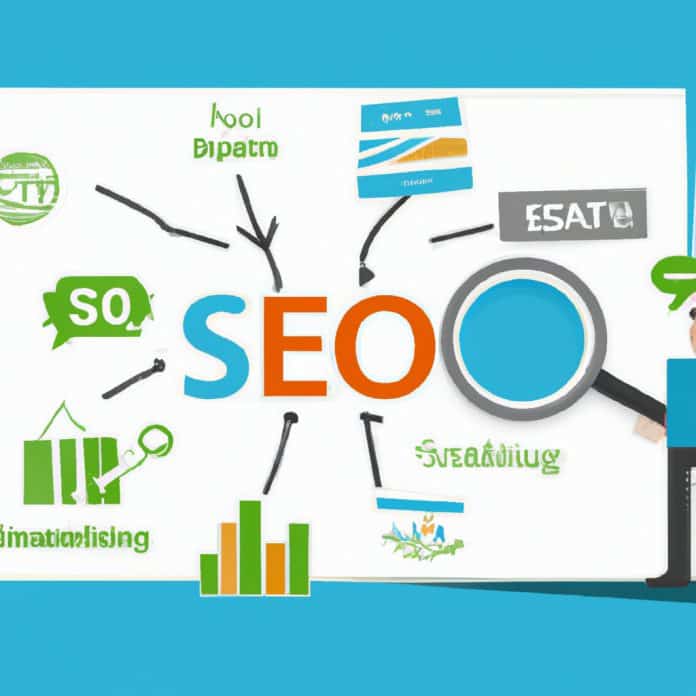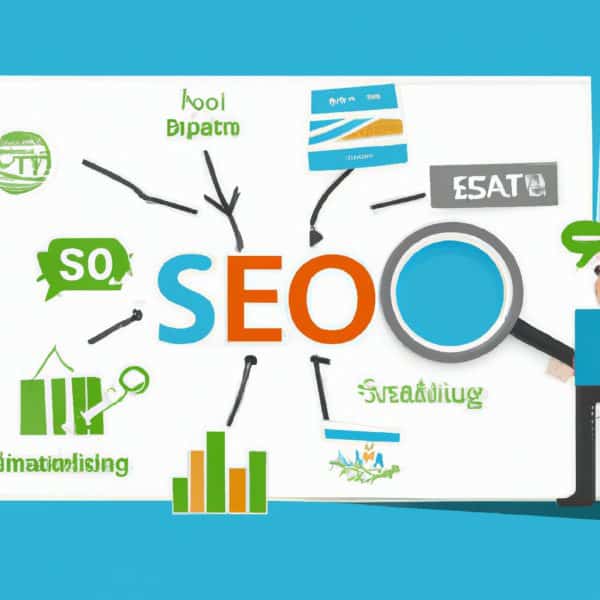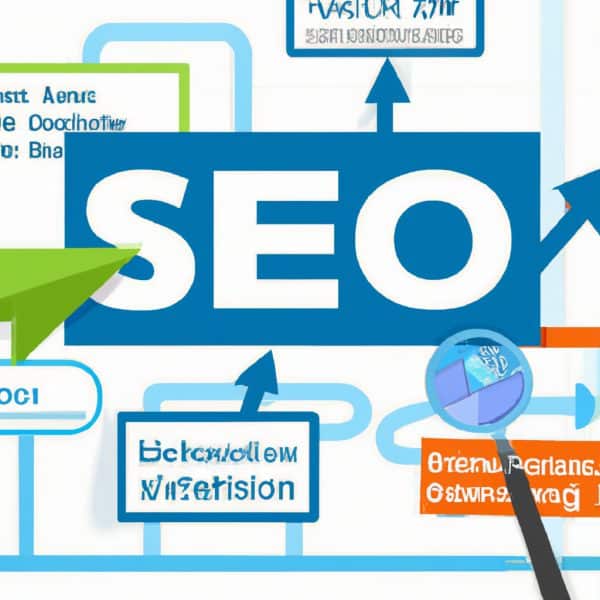When it comes to optimizing your website for search engines, there are two key strategies at play: on-page and off-page SEO. While both have the same end goal of improving your website’s visibility and rankings, they tackle different aspects of the optimization process. On-page SEO focuses on optimizing the content and structure of your website itself, ensuring it is user-friendly and relevant. On the other hand, off-page SEO involves activities that take place outside of your website, such as building backlinks and establishing your online reputation. In this article, we will delve into the difference between these two strategies and explore how they work together to boost your website’s search engine performance. On-page SEO and off-page SEO are two essential components of search engine optimization. Both play a crucial role in improving a website’s visibility and driving organic traffic. While on-page SEO focuses on optimizing various on-page elements of a website, off-page SEO revolves around building external signals and promoting the website through various channels.
On-Page SEO
Review contents
Title Tags
Title tags are one of the most important on-page SEO elements. They serve as the clickable headline in search engine results pages (SERPs) and also appear as the title of a webpage on browser tabs. Crafting concise and keyword-rich title tags is crucial for attracting users and search engines. A well-optimized title tag can significantly impact click-through rates and improve the overall visibility of the webpage.
Meta Descriptions
Meta descriptions provide a brief summary of the webpage’s content. Although they do not directly affect search engine rankings, they play a significant role in attracting users to click on your website in the SERPs. It is essential to create compelling meta descriptions that accurately reflect the page’s content and entice users to visit your website.
Header Tags
Header tags (H1, H2, H3, etc.) are used to structure the content on a webpage. They not only make the content more readable for users but also provide valuable signals to search engines regarding the page’s main topics or themes. Properly utilizing header tags helps search engines understand the hierarchy and relevance of the content, ultimately improving the webpage’s visibility.
Keyword Optimization
Keyword optimization involves strategically placing relevant keywords throughout the webpage’s content. It is crucial to conduct thorough keyword research to identify the terms users are searching for and incorporate them naturally into the content. Optimal keyword usage can help search engines understand the page’s topic and rank it higher in relevant search queries.
URL Structure
A well-structured URL is not only user-friendly but also helps search engines understand the content hierarchy. It is recommended to use descriptive and keyword-rich URLs that accurately represent the webpage’s content. Additionally, ensure that the URLs are concise, readable, and avoid using unnecessary parameters or characters, such as numbers or symbols.
Internal Links
Internal linking refers to the practice of linking pages within the same website. It plays a crucial role in distributing link equity, providing clear pathways for search engines to discover and index pages, and improving user navigation. By strategically placing relevant internal links, you can guide both users and search engines to important pages on your website and enhance overall website authority.
Page Speed
Page speed is a critical factor for both user experience and search engine rankings. Having a fast-loading website improves user satisfaction and reduces bounce rates. Search engines also consider page speed as a ranking factor, prioritizing websites that deliver a seamless browsing experience. Optimizing images, minifying code, using caching techniques, and choosing reliable hosting providers are a few ways to enhance page speed.
Mobile Optimization
With the increasing usage of mobile devices, it is vital to have a mobile-friendly website. Mobile optimization involves creating a responsive or mobile-specific version of the website that adjusts its layout and functionality based on the user’s device. Mobile-friendly websites provide a better user experience, reduce bounce rates, and are favored by search engines, especially with the mobile-first indexing approach.
Content Quality
High-quality content is the backbone of any successful SEO strategy. Creating valuable, informative, and engaging content not only attracts users but also encourages them to share and link back to your website. Ensure that your content is unique, well-researched, and provides in-depth information on the topic. Well-written content also helps search engines understand the relevance and credibility of your website.
Image Optimization
Optimizing images is crucial for improving website performance and user experience. Compressing images, using descriptive filenames, and adding relevant alt text are essential steps in image optimization. Optimized images load faster, reduce bandwidth usage, and have a positive impact on search engine rankings. Additionally, image alt text helps search engines understand the content of an image and can result in improved image search visibility.
Off-Page SEO
Backlinks
Backlinks are one of the most critical off-page SEO factors. They represent links from other websites pointing to your website. Backlinks serve as votes of confidence and indicate that your website is trustworthy and worth referencing. Search engines consider backlinks as a major ranking factor, with high-quality, relevant backlinks carrying more weight. Building a diverse and authoritative backlink profile enhances your website’s visibility and improves search engine rankings.
Social Media Marketing
Social media marketing involves utilizing social platforms to promote your website and engage with your target audience. Social media signals, such as likes, shares, and comments, can indirectly influence search engine rankings by driving traffic, increasing brand visibility, and establishing online authority. By crafting compelling and shareable content, leveraging influencers, and maintaining an active social media presence, you can amplify your website’s reach and boost off-page SEO efforts.
Social Bookmarking
Social bookmarking refers to the process of bookmarking and sharing web pages on social bookmarking websites. These platforms allow users to save, organize, and share web pages they find useful or interesting. By submitting your website or content to reputable social bookmarking sites, you can increase visibility, attract organic traffic, and generate valuable backlinks. However, it is important to avoid spammy bookmarking practices and focus on providing value to the community.
Guest Blogging
Guest blogging involves writing and publishing articles on other websites within your niche. It is a mutually beneficial practice that allows you to showcase your expertise to a new audience while also earning valuable backlinks. By contributing high-quality, informative content to reputable websites, you can build relationships with industry influencers, increase brand exposure, and enhance your website’s authority.
Influencer Outreach
Influencer outreach involves collaborating with influential individuals in your industry to promote your website or content. Influencers have a loyal following and can significantly impact brand visibility and credibility. By establishing genuine connections with relevant influencers, you can leverage their reach and engage a broader audience. Influencer endorsements and mentions can generate organic traffic, increase social proof, and improve off-page SEO.
Brand Mentions
Brand mentions refer to instances where your brand or website is mentioned on other websites, social media platforms, or online publications without a direct link. While they do not provide a backlink, brand mentions still have value in terms of building brand awareness and credibility. Search engines consider brand mentions as a trust signal, indicating that your website or brand is known and respected within your industry.
Online Reviews
Online reviews, particularly on platforms like Google My Business, Yelp, or industry-specific review sites, play a significant role in off-page SEO. Positive reviews not only attract potential customers but also influence search engine rankings. Search engines, like Google, consider online reviews as a reflection of a business’s reputation and quality. Encouraging satisfied customers to leave reviews and responding to them can enhance brand visibility and credibility.
Business Listings
Business listings or citations are online directories where businesses can list their contact information, services, and other relevant details. These listings are essential for local SEO and play a crucial role in off-page optimization. Consistent and accurate business information across various directory listings helps search engines understand the legitimacy and relevance of your business. Additionally, business listings can drive targeted traffic and improve your website’s visibility in local search results.
Press Releases
Press releases are official statements issued by businesses or organizations to announce important news or developments. While they are primarily used for public relations purposes, press releases also have SEO benefits. By distributing optimized press releases through relevant channels, you can generate buzz, attract media attention, and earn valuable backlinks. Press releases can improve brand visibility and authority, leading to enhanced off-page SEO.
Forum Participation
Participating in online forums and communities within your industry allows you to engage with a targeted audience and position yourself as an authoritative figure. By providing valuable insights, answering questions, and contributing to discussions, you can build trust and earn the respect of forum members. This can lead to increased brand visibility, referral traffic, and opportunities for link building through forum signatures or shared resources.
In conclusion, a comprehensive SEO strategy requires a balance of on-page and off-page optimization. On-page SEO focuses on optimizing various elements within a website, such as title tags, meta descriptions, and content quality, to improve search engine visibility. Off-page SEO, on the other hand, involves building external signals, such as backlinks, social media presence, and online reviews, to enhance brand visibility and authority. By implementing both on-page and off-page SEO techniques, you can maximize your website’s potential and drive organic traffic to achieve long-term success.




























